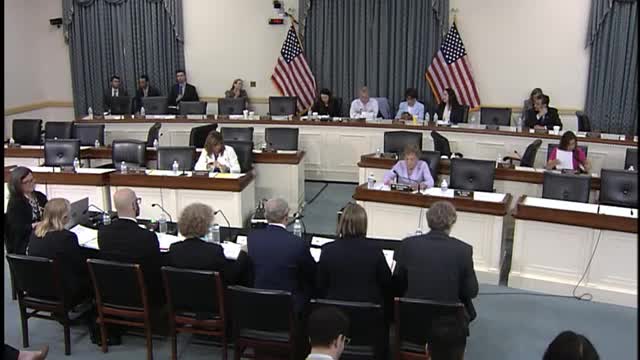CDC Under Fire for Privacy Concerns in Vaccination Surveys
July 24, 2024 | Energy and Commerce: House Committee, Standing Committees - House & Senate, Congressional Hearings Compilation

This article was created by AI summarizing key points discussed. AI makes mistakes, so for full details and context, please refer to the video of the full meeting. Please report any errors so we can fix them. Report an error »

During a recent government meeting, significant concerns were raised regarding the evolving role of the Centers for Disease Control and Prevention (CDC) and its approach to data collection, particularly in relation to vaccination status. A member of Congress expressed apprehension that the CDC's core mission of protecting Americans from infectious diseases has become diluted by an expanded focus that now includes issues such as environmental justice and social determinants of health.
The discussion highlighted the CDC's National Immunization Survey, which involves contacting Americans to gather information about their vaccination status. The congressman noted that several constituents had received calls from the CDC, prompting questions about the agency's methods for obtaining phone numbers and the privacy implications of such outreach. The CDC representative acknowledged the importance of the survey but could not provide specific details about the source of the phone numbers or the number of individuals contacted, promising to follow up with that information.
Further inquiries focused on the CDC's data collection practices regarding children's vaccinations. The representative clarified that the surveys target parents rather than children directly and emphasized that the information collected is de-identified to comply with privacy regulations. The congressman pressed for clarity on how the data is stored and used, particularly in light of the fiscal responsibility to taxpayers. The CDC defended its practices, stating that understanding vaccination coverage is crucial for public health and for guiding healthcare providers in addressing potential outbreaks.
The meeting also touched on the longstanding Dickey Amendment, which restricts federal funding for gun control advocacy. A question was posed regarding how the National Center for Injury Prevention and Control ensures compliance with this prohibition, indicating ongoing tensions between public health initiatives and legislative restrictions.
As the meeting concluded, the importance of transparency and accountability in public health data collection was underscored, reflecting broader concerns about privacy and the effective use of taxpayer resources in addressing health challenges.
The discussion highlighted the CDC's National Immunization Survey, which involves contacting Americans to gather information about their vaccination status. The congressman noted that several constituents had received calls from the CDC, prompting questions about the agency's methods for obtaining phone numbers and the privacy implications of such outreach. The CDC representative acknowledged the importance of the survey but could not provide specific details about the source of the phone numbers or the number of individuals contacted, promising to follow up with that information.
Further inquiries focused on the CDC's data collection practices regarding children's vaccinations. The representative clarified that the surveys target parents rather than children directly and emphasized that the information collected is de-identified to comply with privacy regulations. The congressman pressed for clarity on how the data is stored and used, particularly in light of the fiscal responsibility to taxpayers. The CDC defended its practices, stating that understanding vaccination coverage is crucial for public health and for guiding healthcare providers in addressing potential outbreaks.
The meeting also touched on the longstanding Dickey Amendment, which restricts federal funding for gun control advocacy. A question was posed regarding how the National Center for Injury Prevention and Control ensures compliance with this prohibition, indicating ongoing tensions between public health initiatives and legislative restrictions.
As the meeting concluded, the importance of transparency and accountability in public health data collection was underscored, reflecting broader concerns about privacy and the effective use of taxpayer resources in addressing health challenges.
View full meeting
This article is based on a recent meeting—watch the full video and explore the complete transcript for deeper insights into the discussion.
View full meeting